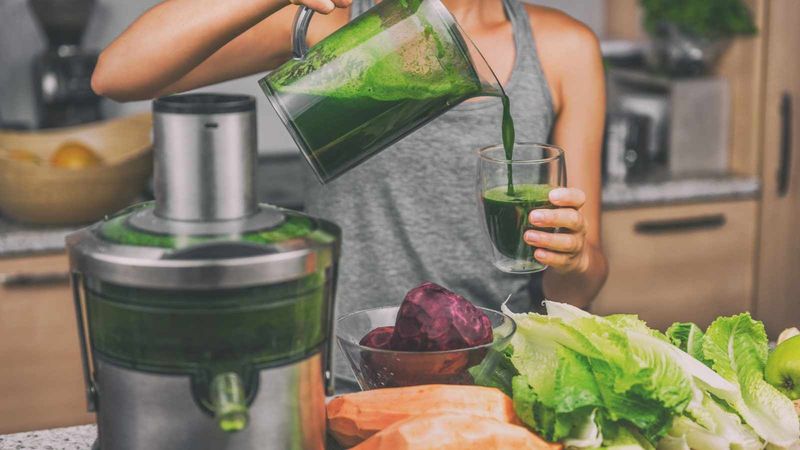Juicing Is Bad for Weight Loss, Here’s Why!
Juicing is a method of extracting juices from fruits and vegetables. It has become a popular dietary trend, often hailed as a quick and easy tool for weight loss. While it’s true that juices can pack a hefty nutritional punch, their impact on weight loss is more complex than these health claims would have you believe.
In this article, we discuss why juicing might not be the magic weight-loss solution you think it is.
Kidney Damage

People consume large amounts of sugary juice to obtain the desired health benefits, not realizing that these beverages are very high in sugar and are dangerous for people with existing kidney conditions. Consuming over a long time could lead to severe kidney damage and organ failure.
High Calories

Even if you’re juicing for health benefits, drinks like carrot juice can be surprisingly high in calories. A single glass of carrot juice contains up to 150 calories, depending on the ingredients used. If you drink multiple glasses daily, those extra calories add up quickly and may negate potential weight loss gains.
Low Fiber

Although delicious and refreshing, juices are generally low in fiber content, negatively impacting digestion and potentially leading to a slower rate of nutrient absorption and a prolonged feeling of satiety. Fluids can increase hunger levels and trigger cravings for less nutritious snack options due to a lack of dietary fiber.
Blood Sugar Spikes

Drinking juice regularly can lead to sudden spikes in blood sugar levels, which could cause various health issues, including diabetes and heart disease. Juices lack the dietary fiber in whole fruits and vegetables, so the sugars from these beverages are absorbed rapidly by your body, causing insulin spikes that are difficult to control.
Refeeding Syndrome

People trying to lose weight quickly by juicing may be at risk of developing refeeding syndrome. Refeeding syndrome occurs when someone returns to a “normal” diet after severe calorie restriction. Symptoms include hypophosphatemia, electrolyte imbalances, and fluid shifts that can lead to respiratory and kidney failure.
Mindless Consumption

Drinking juice can cause mindless consumption and overeating. Most people are unaware of how much they consume when drinking juice, leading them to consume more than their daily recommended sugar intake. Overconsumption can hinder your weight loss goals and cause other health issues in the long run.
Lack of Protein

Protein is an essential nutrient that helps build and repair muscles, strengthen the immune system, regulate appetite, and more. Juices are usually low in protein content, so if you’re not getting enough protein from other sources, it can make it challenging to reach your weight-loss goals.
Lack of Healthy Fats

Healthy fats are an essential part of any balanced diet. They help reduce cholesterol levels, promote healthy brain function, and improve the absorption of vitamins and minerals. Juices lack these essential healthy fats, so if you’re juicing as part of a weight loss regimen, you may miss out on some essential nutrients.
Eating Disorder Risk

Juicing can lead to an unhealthy relationship with food and contribute to eating disorders. Relying solely on juices can result in restrictive eating practices, nutrient deficiencies, and conditions like anorexia or bulimia. Maintaining a balanced and varied diet for sustainable, healthy weight management is important.
Expense

Juicing can be an expensive habit. Ingredients like fruits and vegetables are not always affordable, especially when purchasing organic produce. Juicers themselves also cost a lot of money. Due to its unsustainable cost, many people struggle to keep up with their juice diet.
